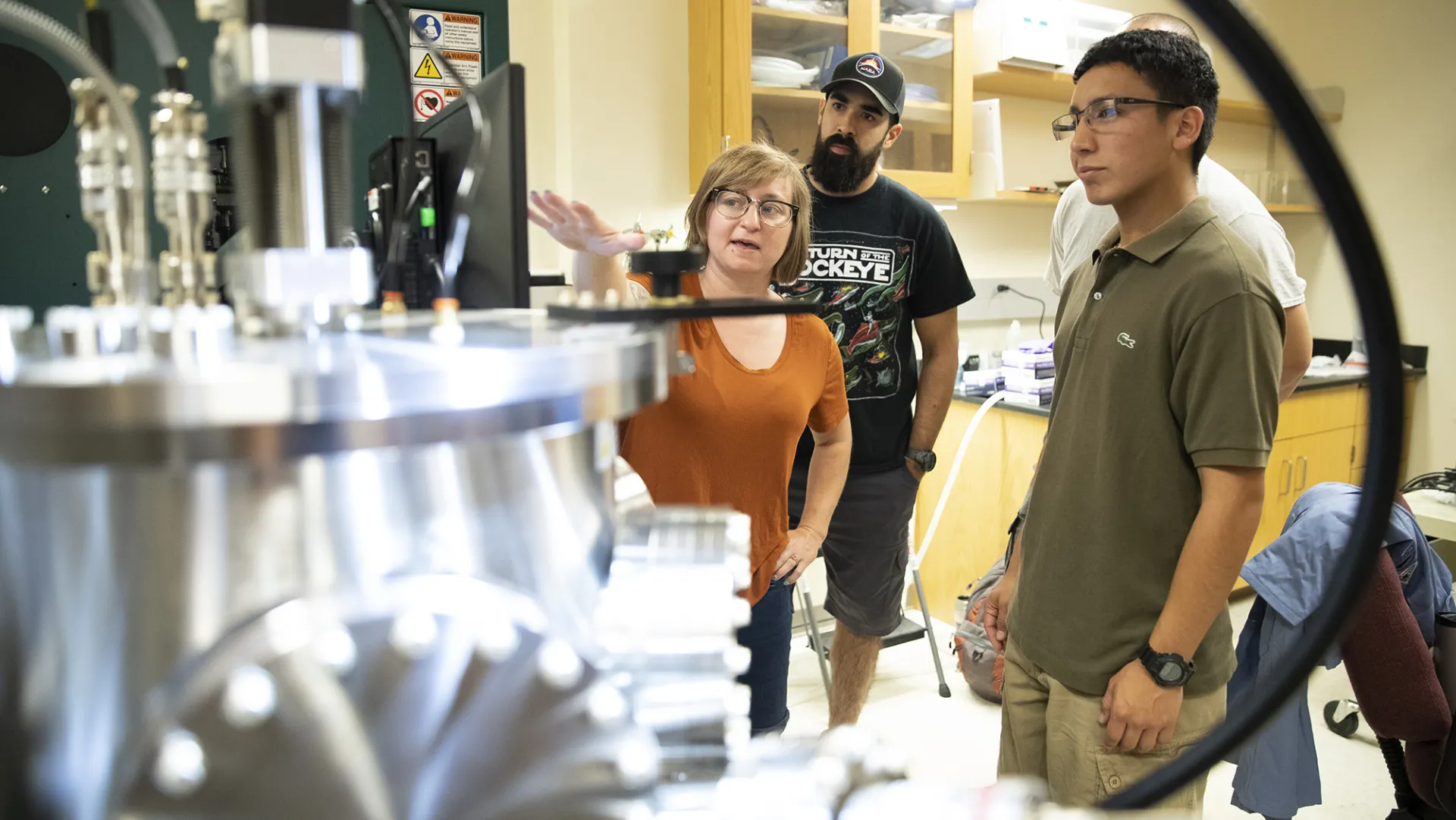Joe Gutierrez | Office of Strategic Communication | (909) 537-3007 | joeg@csusb.edu

The U.S. Department of Energy (DOE) has finalized its approval of a $125,000 grant to Cal State San Bernardino’s Department of Physics and Astronomy to support CSUSB students’ research on high energy physics at the Pacific Northwest National Lab (PNNL).
The one-year grant, which will partner CSUSB with the PNNL under the Experiencing Physics and Inspiring Communities (EPIC) project, will allow five students to travel to PNNL for summer research along with Sara Callori, CSUSB associate professor of physics.
The students will also participate in mentoring activities before traveling to the lab and will have the opportunity to remotely continue their research projects when they are back on campus in the fall. And the grant will allow the department to bring high energy physics topics and experiments into its instructional lab classes.
Callori explained that high energy physics is a broad discipline with opportunities for students and scientists from other areas to contribute. “These areas are incredibly interdisciplinary in that while the science they study is often rooted in physics, they bring in so many other academic areas and skills.”
The CSUSB School of Computer Science and Engineering will also take part in the grant. Computer science also plays a critical role in modern high energy physics research, enabling researchers to analyze vast amounts of data generated by experiments and simulations, said Fadi Muheidat, an associate professor of computer science.
“The partnership with the Pacific Northwest National Laboratory provides students with new opportunities to develop their skills and apply them to high-performance computing problems related to fields like high energy physics, data science, and quantum computing,” Muheidat said.
The DOE’s HEP-RENEW grant stands for Researching a New Energy Sciences Workforce for High Energy Physics. It is aimed at providing training and research support in high energy physics for members of communities historically underserved in this field, which includes many CSUSB students.
“Through this grant, we will broaden the types of physics and research CSUSB students can encounter and demonstrate how those with a variety of science, technology, engineering and mathematics (STEM) backgrounds (not just physics) can contribute to the high energy field,” said Callori, who served as principal investigator on the grant application.
“EPIC builds on the expertise and scientific impact of PNNL’s nuclear and particle physics researchers and STEM education to help inspire and prepare a diverse generation of STEM professionals for the future,” said Evangelina Shreeve, PNNL’s Office of STEM Education director and chief diversity officer.
The grant partners CSUSB with PNNL to provide students with hands-on research experience. “DOE national labs can be very engaging and exciting places for students to consider when thinking about long-term career plans,” said Callori.
Because there are no national labs in Southern California, access to PNNL points toward a huge employment sector that can lead to a satisfying career that, by and large, CSUSB’s students just don’t know much about, she added.
“One of the takeaways of this grant for our students is that the skills they gain are transferable to a number of fields,” said Javier Torner, CSUSB professor of physics and department chair. “These skills and experiences will help them stand out to future employers or graduate programs.”
Sastry Pantula, dean of the College of Natural Sciences, shared his excitement at this new partnership and opportunity.
“We are opening doors for our students via this outstanding partnership with PNNL and their researchers,” Pantula said. “I appreciate and congratulate our physics and astronomy department for working so hard to push them open. It helps us train future leaders in science from diverse backgrounds.”
Callori said, “Because of this grant, students will receive hands-on experience at a state-of-the-art research facility and get to contribute to large-scale, national scientific efforts.”
For more information, visit the CSUSB Department of Physics and Astronomy website.